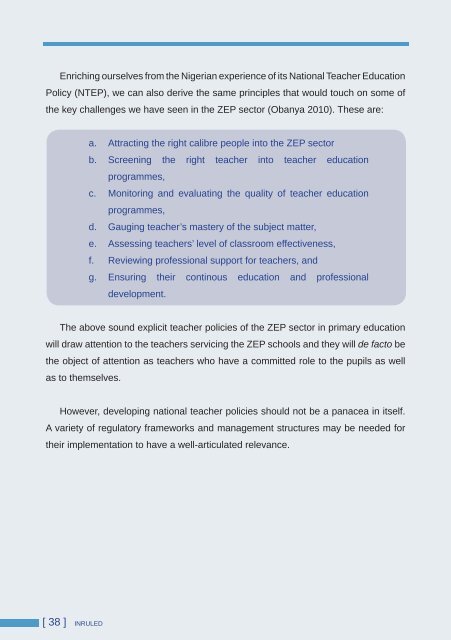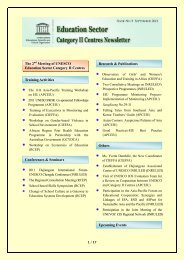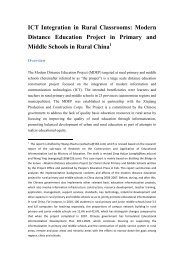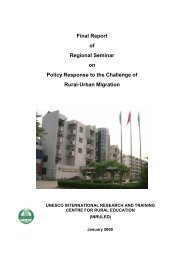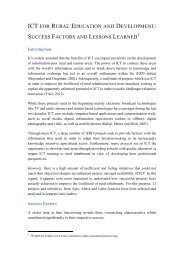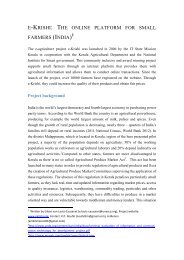Download - inruled
Download - inruled
Download - inruled
You also want an ePaper? Increase the reach of your titles
YUMPU automatically turns print PDFs into web optimized ePapers that Google loves.
Enriching ourselves from the Nigerian experience of its National Teacher Education<br />
Policy (NTEP), we can also derive the same principles that would touch on some of<br />
the key challenges we have seen in the ZEP sector (Obanya 2010). These are:<br />
a.<br />
b.<br />
c.<br />
d.<br />
e.<br />
f.<br />
g.<br />
Attracting the right calibre people into the ZEP sector<br />
Screening the right teacher into teacher education<br />
programmes,<br />
Monitoring and evaluating the quality of teacher education<br />
programmes,<br />
Gauging teacher’s mastery of the subject matter,<br />
Assessing teachers’ level of classroom effectiveness,<br />
Reviewing professional support for teachers, and<br />
Ensuring their continous education and professional<br />
development.<br />
The above sound explicit teacher policies of the ZEP sector in primary education<br />
will draw attention to the teachers servicing the ZEP schools and they will de facto be<br />
the object of attention as teachers who have a committed role to the pupils as well<br />
as to themselves.<br />
However, developing national teacher policies should not be a panacea in itself.<br />
A variety of regulatory frameworks and management structures may be needed for<br />
their implementation to have a well-articulated relevance.<br />
[ 38 ] INRULED


